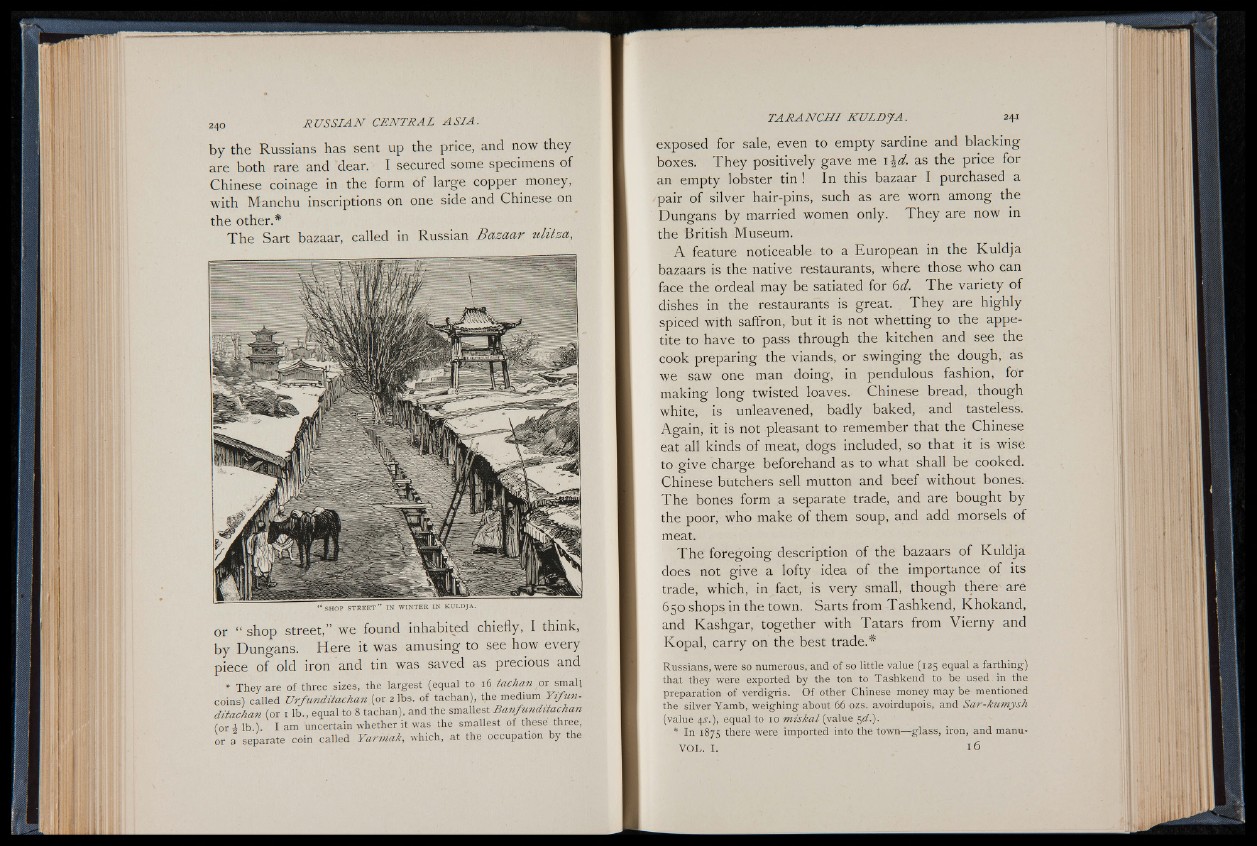
by the Russians has sent up the price, and now they
are both rare and dear. I secured some specimens of
Chinese coinage in the form of large copper money,
with Manchu inscriptions on one side and Chinese on
the other.*
The Sart bazaar, called in Russian Bctzctav ulitza,
or “ shop street,” we found inhabited chiefly, I think,
by Dungans. Here it was amusing to see how every
piece of old iron and tin was saved as precious and
* They are of three sizes, the largest (equal to 16 tachan or small
coins) called Urfundita.ch.an (or 2 lbs. of tachan), tjie medium Yifun-
ditachan (or I lb., equal to 8 tachan), and the smallest Banfunditachan
(or i lb ). I am uncertain whether it was the smallest of these three,
or a separate coin called Yarmak, which, at the occupation by the
exposed for sale, even to empty sardine and blacking
boxes. They positively gave me i \d. as the price for
an empty lobster tin ! In this bazaar I purchased a
pair of silver hair-pins, such as are worn among the
Dungans by married women only. They are now in
the British Museum.
A feature noticeable to a European in the Kuldja
bazaars is the native restaurants, where those who can
face the ordeal may be satiated for 6cL. The variety of
dishes in the restaurants is great. They are highly
spiced with saffron, but it is not whetting to the appetite
to have to pass through the kitchen and see the
cook preparing the viands, or swinging the dough, as
we saw one man doing, in pendulous fashion, for
making long twisted loaves. Chinese bread, though
white, is unleavened, badly baked, and tasteless.
Again, it is not pleasant to remember that the Chinese
eat all kinds of meat, dogs included, so that it is wise
to give charge beforehand as to what shall be cooked.
Chinese butchers sell mutton and beef without bones.
The bones form a separate trade, and are bought by
the poor, who make of them soup, and add morsels of
meat.
The foregoing description of the bazaars of Kuldja
does not give a lofty idea of the importance of its
trade, which, in fact, is very small, though there' are
650 shops in the town. Sarts from Tashkend, Khokand,
and Kashgar, together with Tatars from Vierny and
Kopal, carry on the best trade.*
Russians, were so numerous, and of so little value (125 equal a farthing)
that they were exported by the ton to Tashkend to be used , in the
preparation of verdigris. Of other Chinese money may be mentioned
the silver Yamb, weighing about 66 ozs. avoirdupois, and Sar-kumysh
(value 4^.), equal to 10 miskal (value 5di).
* In 1875 there were imported into the town— glass, iron, and manu-
V O L . I . 1 6